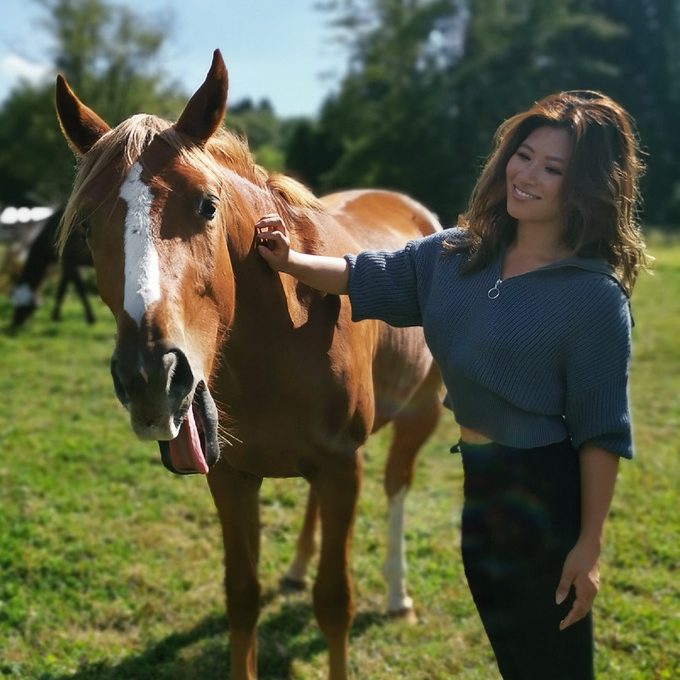
Becky Kenworthy
Becky Kenworthy’s Story
My parents will tell you that sending me to horse camp when I was just a little girl was the worst best decision of their lives. It was love at first whinny for me, and ever since then, I knew I needed to know everything there was to know about horses. Eventually, I would find myself falling hard for (and at) equine competitions where the bars were set high, and there seemed to be no limitations to the equine experience. However, the more time I spent in this environment, the less connected I felt to horses in general. We would often gather with our coaches post events to reflect on progress, and it always struck me how systemic and normalized it was to fault a horse’s physical attributes and contribute errors to riders for their emotionality while the affective states of the equine athletes were dismissed from the conversation. Compound that with the conventional circumstances of keeping a social herd animal for prolonged periods in boxed stalls, serving high-concentrate forage, and without the ability to even touch another horse, all while under the pressure of performing in the show ring.
I knew this didn’t stem from a lack of care for our horses, as the people I crossed paths with were some of the most passionate equestrians I had ever known. However, a disconnect existed between our growing knowledge surrounding equine welfare and a culture of traditions that seemed all but set in stone. I knew there must be an alternate course, so I pursued therapy work with horses that eventually guided me through a Major in Psychology at UBC. However, it wasn’t until after meeting Dr. Amelia McCrae, the instructor for APBI 316: Equine Biology, Health and Welfare, that my venture into the Animal Welfare Program became all but inevitable. She opened my eyes to the possibility of improving the equine experience through research, and now that I knew the ‘why,’ I just needed to figure out ‘how!’
During my first in-person semester of classes back on campus after the pandemic, I was introduced to Dr. Alexandra Protopopova after taking her graduate seminar about the complexities of animal learning and motivation. Have you ever had an “aha” moment that seemed to light every bulb? Under her thoughtful guidance, I find myself working with horses again in ways that strive to better understand factors impacting their motivation with the hope that it will prepare owners, handlers, and trainers with informed solutions to reduce stress and enhance learning performance through increased positive associations to humans, which promotes better welfare for the horses in their care.
My advice to students looking to pursue research opportunities is to jump with both feet in the stirrups and arms wide open to capture all the moments and embrace all the people you meet along the way. Also, to take APBI 398 with Dan and Nina, of course! This will be a ride you won’t soon forget.
Please note that APBI 398 Research Methods in Applied Biology is a required course for APBI Honours students and is also open to other APBI students. It is open to non-APBI students with the permission of the instructor.